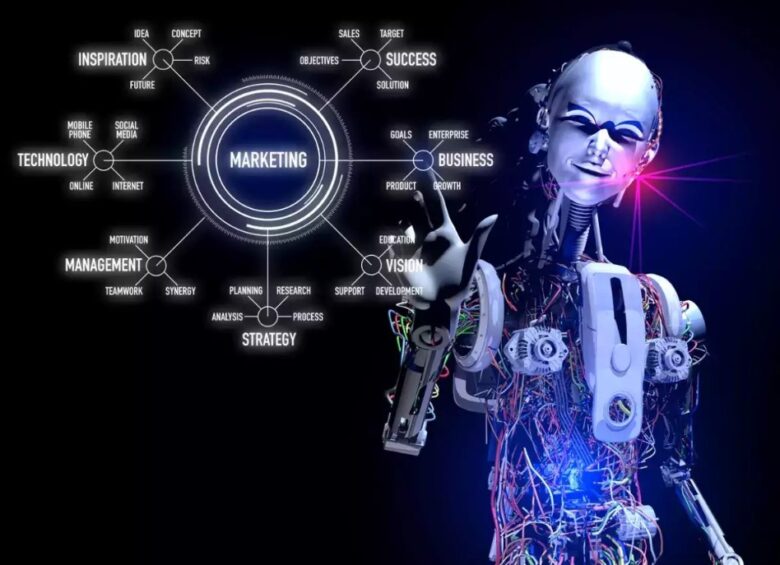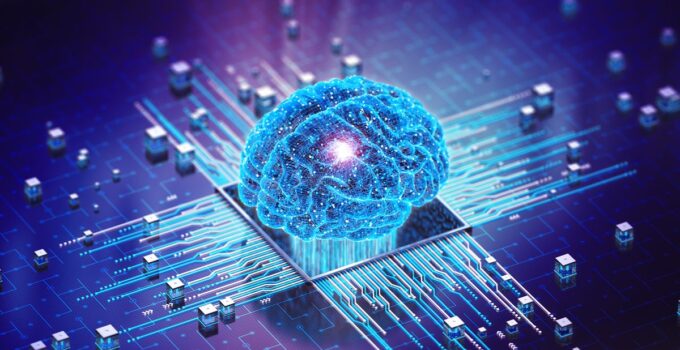The internet, once heralded as a digital utopia for free thought, creativity, and communication, is undergoing a seismic shift. What began as a place of human interaction and shared knowledge is now increasingly dominated by artificial intelligence (AI), transforming it in ways that range from subtle to overtly problematic.
AI, once lauded for its potential to revolutionize industries, has begun to degrade key aspects of the internet, from social media and email to advertising and content creation. The rise of AI is not just shaping the web but, in many ways, eroding the quality and authenticity of the online experience.
AI’s Exploitation of Social Media

Source: socialpilot.co
Social media platforms are among the most visible casualties of AI-driven degradation. Initially created as spaces for individuals to connect and share content, they are now heavily influenced by AI algorithms that prioritize engagement over meaningful interaction.
Platforms like Facebook, Instagram, and Twitter use sophisticated machine learning models to determine what users see, pushing content that maximizes engagement, regardless of quality. The goal is not to promote valuable discussions or genuine content, but to keep users on the platform longer to increase ad revenue.
This AI-driven focus on engagement often leads to the spread of sensational, emotionally charged content—whether true or false. Misinformation, outrage-inducing posts, and clickbait headlines are elevated because they provoke reactions, even if they degrade the quality of discourse.
Rather than fostering informed communities, AI algorithms create echo chambers, where divisive content thrives, and nuanced discussions are drowned out. As a result, social media platforms, once seen as revolutionary tools for connection and knowledge sharing, have become breeding grounds for polarization, misinformation, and superficial content.
The consequences of AI manipulation on social media extend beyond the quality of conversations. Bots and AI-generated accounts have increasingly taken over these platforms, producing fake likes, followers, and even entire conversations. Some bots are used for political influence, while others are employed for corporate interests, skewing public perception by creating an illusion of consensus or popularity. Genuine human engagement is often overshadowed by these AI-generated interactions, diluting the authenticity of online communities.
The Rise of AI Spam in Email

Source: thequint.com
Email, once a reliable form of digital communication, has become another victim of AI exploitation. While spam is not a new problem, AI has made it more insidious. AI-driven phishing campaigns, for instance, are becoming more sophisticated, using natural language processing to craft emails that mimic human tone and behavior. These emails are often indistinguishable from genuine correspondence, making it difficult for users to identify fraudulent messages. AI also enables mass customization of spam, allowing scammers to tailor messages to individual recipients, increasing the likelihood of success.
Spam filters, although also powered by AI, are in a constant arms race with these sophisticated AI-generated emails. While filters can catch many generic spam messages, AI-crafted phishing emails often slip through the cracks, preying on vulnerable users. As a result, email inboxes have become battlegrounds where users must navigate an ever-growing volume of unwanted and potentially harmful messages.
Beyond phishing, AI is used in marketing emails to an overwhelming degree. Marketers employ AI to analyze vast amounts of data and predict which messages will resonate most with users, leading to an increase in the frequency and volume of promotional emails.
While targeted marketing is not inherently harmful, the sheer scale of AI-driven email campaigns has flooded inboxes with noise, making it harder for users to sift through their email and focus on important or meaningful correspondence.
AI in Advertising ─ Hyper-Targeted and Intrusive

Source: brandequity.economictimes.indiatimes.com
The degradation of the internet is also evident in the realm of advertising. AI-powered advertising networks, such as those operated by Google and Facebook, use algorithms to track user behavior across websites and devices, creating detailed profiles of individuals.
These profiles are then used to deliver hyper-targeted ads, personalized down to the most minute detail, from recent searches to past purchases to even inferred emotional states. While this may seem efficient from a business perspective, it comes at the cost of user privacy and online experience.
AI-driven ads have become increasingly invasive, following users across the internet and appearing in unexpected places. The internet’s transformation into a vast advertising space means that content is often designed to serve advertisers rather than users.
Websites and platforms prioritize content that generates ad clicks over content that informs or educates. This AI-powered advertising ecosystem has turned the internet into a marketplace where user data is the currency, and personal privacy is sacrificed for the sake of revenue.
Moreover, AI’s involvement in advertising has led to a proliferation of fake and misleading ads. Deepfakes, AI-generated videos, and synthetic media have started to appear in online ads, making it harder for users to differentiate between real and fabricated content. These AI-manipulated ads can be used for nefarious purposes, from scams to political propaganda, further eroding trust in the information and content found online.
The AI-Generated Content Explosion

Source: clickwire.io
AI’s influence on content creation is another major factor in the degradation of the internet. With the advent of natural language processing models like GPT-3 and its successors, AI can now generate entire articles, blog posts, and social media updates with minimal human input. While this has opened up new possibilities for content generation, it has also led to an explosion of low-quality, AI-generated content that floods the web.
AI-written articles often lack the depth, nuance, and creativity that human writers bring to their work. They may be factually accurate, but they lack the emotional and intellectual engagement that defines quality content.
Furthermore, AI-generated content is often produced in massive quantities, optimized for search engines rather than for human readers. As a result, search engine results pages are increasingly populated with shallow, repetitive, and formulaic articles designed to capture clicks rather than provide value.
This degradation of content is not limited to written articles. AI-generated videos, images, and even music are becoming more common, particularly in advertising and social media. While these creations can be impressive from a technical standpoint, they contribute to a growing sense of inauthenticity on the internet. Users are bombarded with AI-generated content that feels manufactured, rather than the organic, creative output of real people.
The Future ─ AI and the Erosion of Trust

Source: dotmagazine.online
The most concerning aspect of AI’s degradation of the internet is the erosion of trust. As AI continues to blur the line between human and machine-generated content, it becomes increasingly difficult to know what is real and what is artificial. Deepfakes, AI-generated news articles, and synthetic media all contribute to a digital environment where authenticity is no longer guaranteed.
This erosion of trust extends to personal interactions. Chatbots and AI-driven customer service agents are often indistinguishable from human representatives, leading to frustration and confusion. Users are left questioning whether they are interacting with real people or with AI, creating a sense of detachment and alienation from the online world.
Moreover, AI’s ability to manipulate information and generate fake content at scale raises concerns about the future of democracy and public discourse. As AI becomes more adept at creating convincing fake news, propaganda, and disinformation, it poses a threat to the integrity of elections, public opinion, and civic engagement.
Conclusion
While AI has undoubtedly brought advancements and efficiencies to the internet, it has also contributed to its degradation in significant ways. From the manipulation of social media algorithms to the rise of AI-generated spam and content, the internet is becoming an increasingly artificial and less trustworthy space.
As AI continues to evolve, the challenge will be to find a balance between leveraging its capabilities and preserving the authenticity, privacy, and integrity of the online world. Without careful regulation and thoughtful implementation, AI could transform the internet from a place of human connection and creativity into a machine-driven, profit-oriented landscape devoid of genuine value.




